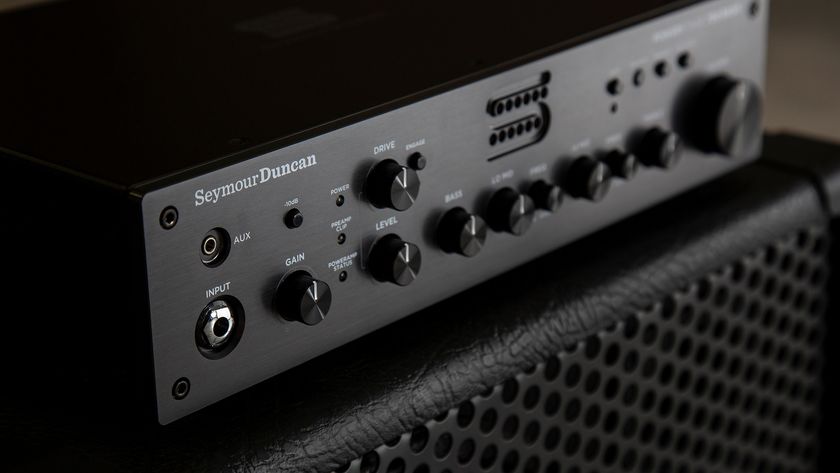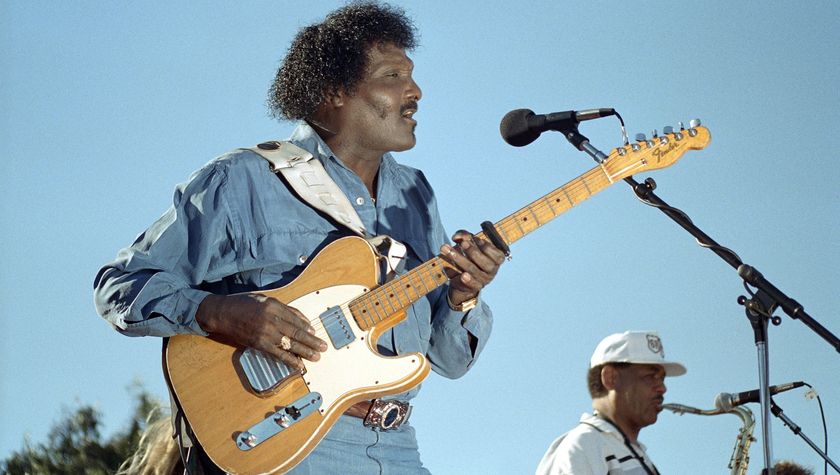Courtney Barnett: “I’ve started realising how many more options there are – the ideas are really endless”
Courtney Barnett unpacks the introspection and the scenic inspirations that led to her most restrained, but also most experimental album yet
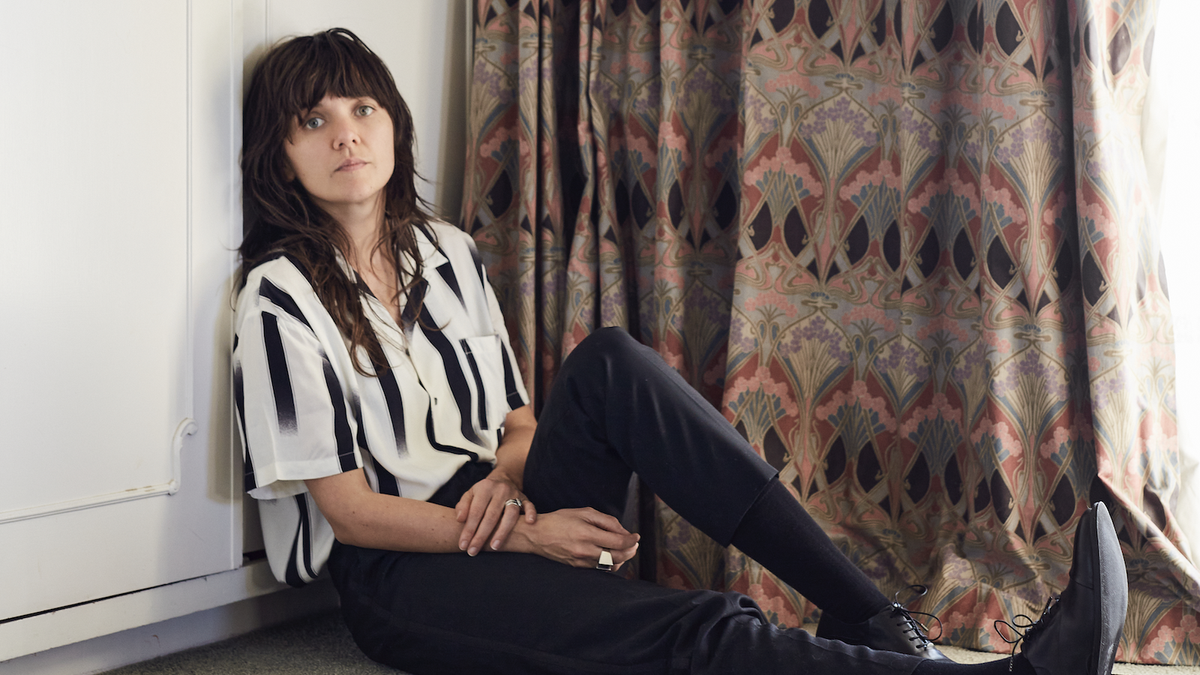
Cutting her teeth on the bustling streets of Melbourne, it was her warm, honeyed folkiness and labyrinthine poetry that gave Courtney Barnett her most ardent supporters. Becoming an international indie-rock stalwart seemingly overnight, she cranked up the energy for her summery debut full-length, Sometimes I Sit And Think, And Sometimes I Just Sit (2015), and sank farther into the rabbithole of grungy, punky grit on its follow-up, Tell Me How You Really Feel (2018). But for her third solo album, Things Take Time, Take Time, the story-centric singer-songwriter has, in a sense, returned to her roots.
It wasn’t entirely intentional, either. When Barnett was starting out, she was bound to the volumetric constraints of sharehouses and flats, writing gentler songs on acoustic guitars to avoid complaints from her neighbours. It made sense to beef up the sonics for her first two albums, then, because with whole studios of amps, electric guitars and pedals at her disposal, Barnett was able to shred out to her heart’s content – ditto for those of her bandmates in the CB3. But this time around, with touring off the table and all the studios in her immediate vicinity shut – y’know, global pandemic and all – Barnett found herself once more in those restricted settings, flat-sitting for a mate in her old batting grounds of Melbourne.
Combined with a newfound affection for timid folk tunes – and knowing that LP3 would materialise without her band in tow – Barnett started penning more reflective, pared-back ruminations on one of the most uncertain and confusing times of her life. But for all of its nostalgic flair, Things Take Time, Take Time is also Barnett’s most experimental work, thanks in no short part to all the risks she and producer/drummer Stella Mozgawa took in the studio – whether it be with synth machines, new recording techniques, or the insularity that led Barnett’s mind to wander.
This record gives me a lot of the same vibes I get from your earlier work – it’s very poetically intoned, a little quirky, and it has that breezy sort of canter to it. Where did that vibe come from?
I can see that similarity. A lot of these songs were born in similar places – I wrote a lot of them in a small apartment, so they were kind of quiet and timid a bit more subdued, because I didn’t really want to distract the neighbours. When the other albums came to life in the studio, it was more full-on – y’know, you step into a studio and you’re like, “Oh my God, I can turn my amp up! I’m not usually allowed to do this!” I reckon that was one of the biggest differences.
I think it also comes down to the people I surround myself with, all the different musicians that I collaborate with on different projects; everyone has their own energy that they bring to a song without even trying, because that’s how they sound. Even if you’re trying to write in a particular style, you always bring a bit of yourself into it.
Did you have the CB3 with you in the studio?
Nah, this album I made with Stella Mozgawa, and we just played all the instruments ourselves. I was sending her a lot of my demos and asking her a lot about production, and we were sending a lot of music back and forth. I knew I was working on an album, but I wasn’t thinking, “I’m recording an album right now.”
We did one session over a couple of days, and we were like, “Maybe we’ll do some drums and guitars, and then we’ll take it somewhere else and we’ll get people to add to it.” But then we ended up just really enjoying the process, and the kind of smallness of this world that we’d created. We did “Rae Street” and I was like, “I’ve got an idea for bassline,” so I did the bassline, and then we just kept adding whatever we wanted to add on different songs.
Get The Pick Newsletter
All the latest guitar news, interviews, lessons, reviews, deals and more, direct to your inbox!
It was just a lot quieter and a lot more playful – similar to the way I used to record at home where it would be like, you have an idea, and then you just do it.
There’s a lot more drum machine on this record than I was expecting. Were you just going full Radiohead, f***ing around with all of these crazy devices?
I just love drum machines so much! I’ve been using them for like six years, and I’m still obsessed with them. I still just think they’re so fun and exciting. Yeah, when I sent a lot of my demos to Stella, they still had the drum machines in them, and she was just like, “Well, let’s not take them out. Let’s keep them in.”
Normally she would make a beat on whatever drum machine we had at the ready – we had a couple of different ones – and then she would play live drums as well. There was this nice balance of human and machine, y’know? It had that meditative, like, rolling thing happening, but then it still had the element of a real drum thumping like a heartbeat. It’s such a beautiful mix, I reckon, such a dynamic environment to play in. There’s so much of this beautiful, kind of intricate percussion which I just find so exciting.
I suppose after a while, you have to start switching things up to keep the art feeling fresh and exciting.
Yeah, I think it’s important to be eternally curious. It’s all about just learning new things. I think I maybe used to be a bit more close-minded – I’d be like, «Well, there’s these three options of how to do things, and that’s all I’m allowed to do.” But that’s not the case! There’s such a vast world of options – pedals and synths and keyboards and drum machines and computers – and they’re all interesting. You never know what you’re going to get! I just love that idea of experimenting and, like, not knowing what you’re doing, but figuring it out along the way.
So have the goalposts been shifted for what might be possible on future records?
Oh yeah, for sure! I think making [Things Take Time, Take Time] was such an eye-opening experience. Yeah, it is like the goalposts shifting – I’ve started realising how many more options there are, that the ideas are really endless. I think as well, part of it is that idea of growing up with people looking down their noses at certain types of music, and you grow up with that same idea. You’re like, “Oh, no, we don’t like that, because that’s blah-blah.” It’s just so close-minded. But then, I don’t know, you grow up a little bit and just realise that everything is amazing.
How do you see all of these new songs translating to the stage?
I think it’s gonna be really fun to play them live. I can’t wait. It’ll be fun to add new things along the way. We had a couple of rehearsals in-between lockdowns –
we were supposed to have more, but we only got two in – and it was so fun. It was so cool to hear [all the songs] come to life. Because a lot of the time in the studio, I’m figuring things out and trying to understand how the song works. So by the time I’ve finished an album, I’m like, “Oh, I get it now! I’m gonna play it differently.” It settles in in a different way.
So having made the record with Stella, and now bringing your touring bandmates into the fold, how have you found these songs taking on a life of their own?
I definitely think that making the album with Stella made it a totally different album than it would have been if I’d made it with anyone else. She brings all of her musical knowledge and skill, and she’s such an incredible musician. It’s always incredible to see how different people work, so I loved that process of making the album with her.
And then bringing in someone like Bones [Sloane] – he’s such a solid bass player, and such a thoughtful person to play music with. And Dave [Mudie] as well, Dave’s an incredible drummer, he’s so adaptable and so skilled; he’s so talented beyond what he exhibits. So it’s just, like, this perfect mix of musicians with egos in check, with everybody serving the song and making the song the very best it can be. That’s always a really exciting way to play music.

Ellie Robinson is an Australian writer, editor and dog enthusiast with a keen ear for pop-rock and a keen tongue for actual Pop Rocks. Her bylines include music rag staples like NME, BLUNT, Mixdown and, of course, Australian Guitar (where she also serves as Editor-at-Large), but also less expected fare like TV Soap and Snowboarding Australia. Her go-to guitar is a Fender Player Tele, which, controversially, she only picked up after she'd joined the team at Australian Guitar. Before then, Ellie was a keyboardist – thankfully, the AG crew helped her see the light…
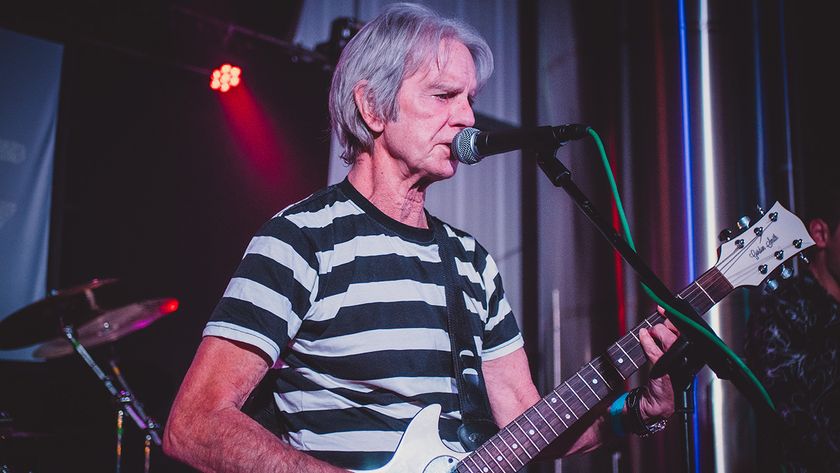
“I get asked, ‘What’s it like being a one-hit wonder?’ I say, ‘It’s better than being a no-hit wonder!’” The Vapors’ hit Turning Japanese was born at 4AM, but came to life when two guitarists were stuck into the same booth
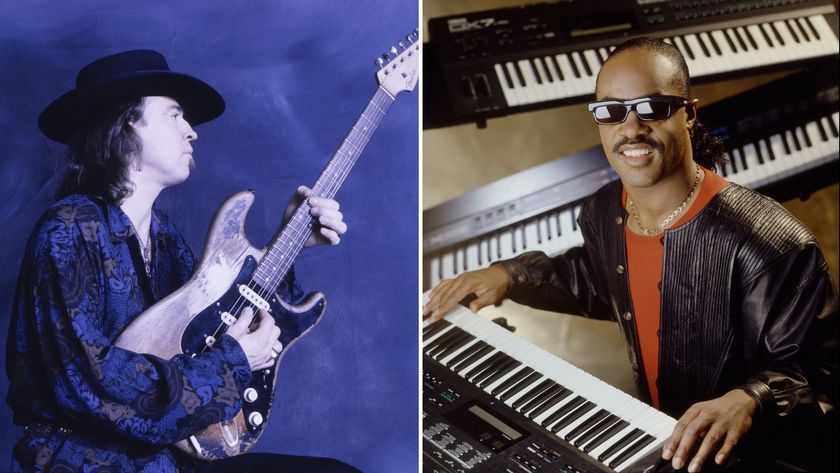
“Let's play... you start it off now, Stevie”: That time Stevie Wonder jammed with Stevie Ray Vaughan... and played SRV's number one Strat
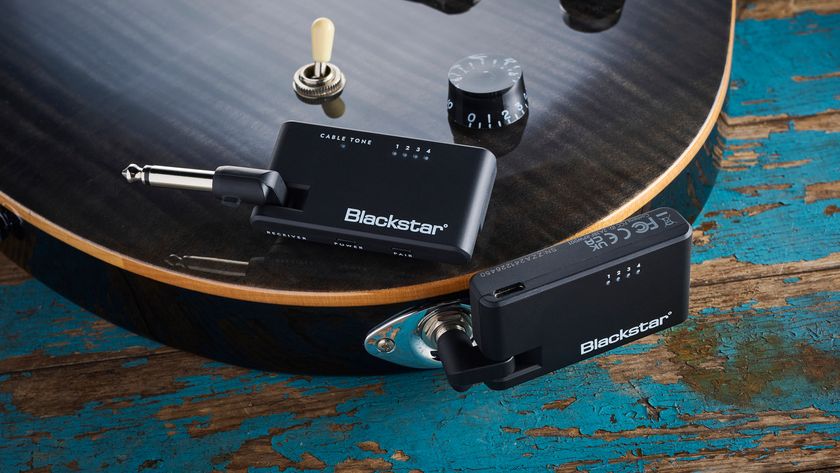
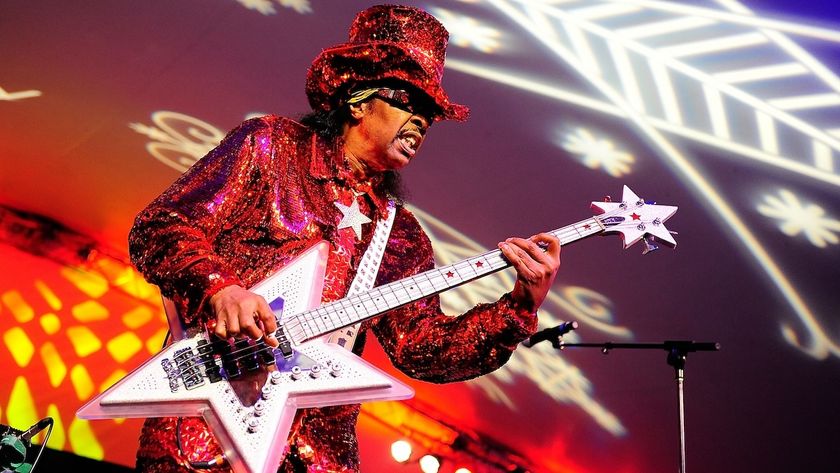
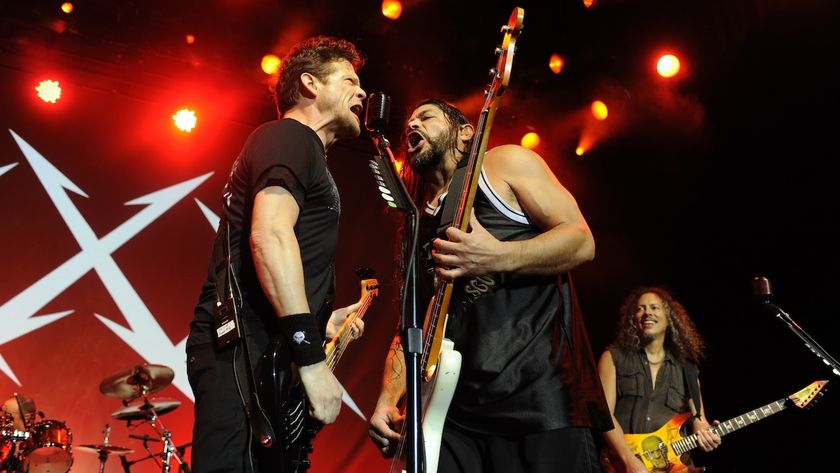
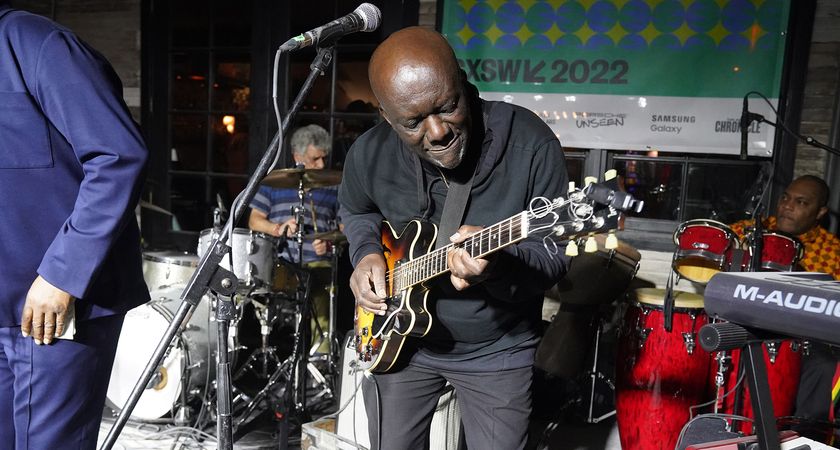
![[L-R] George Harrison, Aashish Khan and John Barham collaborate in the studio](https://cdn.mos.cms.futurecdn.net/VANJajEM56nLiJATg4P5Po-840-80.jpg)
